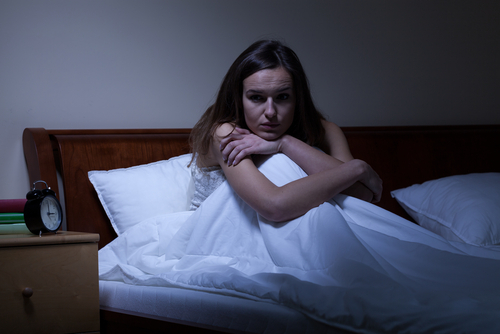Sleep-wake preference linked to mood disorders and depression: Study
ANI Jun 15, 2018
Middle-to-older aged women who are naturally early to bed and early to rise are significantly less likely to develop depression, according to researchers at University of Colorado Boulder and the Channing Division of Network Medicine at Brigham and Women's Hospital in Boston.

The study of more than 32,000 female nurses explored the link between chronotype, or sleep-wake preference, and mood disorders. It showed that even after accounting for environmental factors like light exposure and work schedules, chronotype - which is in part determined by genetics - appears to mildly influence depression risk.
"Our results show a modest link between chronotype and depression risk. This could be related to the overlap in genetic pathways associated with chronotype and mood," said lead author Céline Vetter. The researchers found that late chronotypes, or night owls, are less likely to be married, more likely to live alone and be smokers, and more likely to have erratic sleep patterns. After accounting for these factors, they found that early risers still had a 12 - 27 percent lower risk of being depressed than intermediate types. Late types had a 6 percent higher risk than intermediate types (this modest increase was not statistically significant.)
Genetics play a role in determining whether you are an early bird, intermediate type, or night owl, with research showing 12-42 percent heritability. And some studies have already shown that certain genes (including PER2 and RORA), which influence when we prefer to rise and sleep, also influence depression risk. "Alternatively, when and how much light you get also influences chronotype, and light exposure also influences depression risk. Disentangling the contribution of light patterns and genetics on the link between chronotype and depression risk is an important next step," Vetter said.
Vetter stressed that while the study suggested that chronotype was an independent risk factor for depression, it did not mean night owls were doomed to be depressed. "Being an early type seems to beneficial, and you can influence how early you are" she said. “Try to get enough sleep, exercise, spend time outdoors, dim the lights at night, and try to get as much light by day as possible.” The study is published in the Journal of Psychiatric Research.
-
Exclusive Write-ups & Webinars by KOLs
-
Daily Quiz by specialty
-
Paid Market Research Surveys
-
Case discussions, News & Journals' summaries